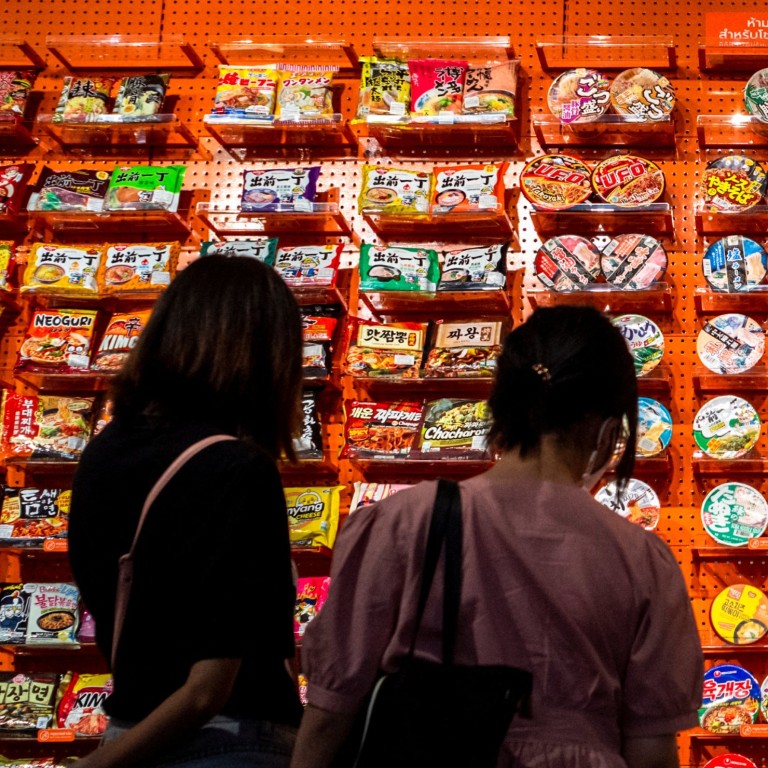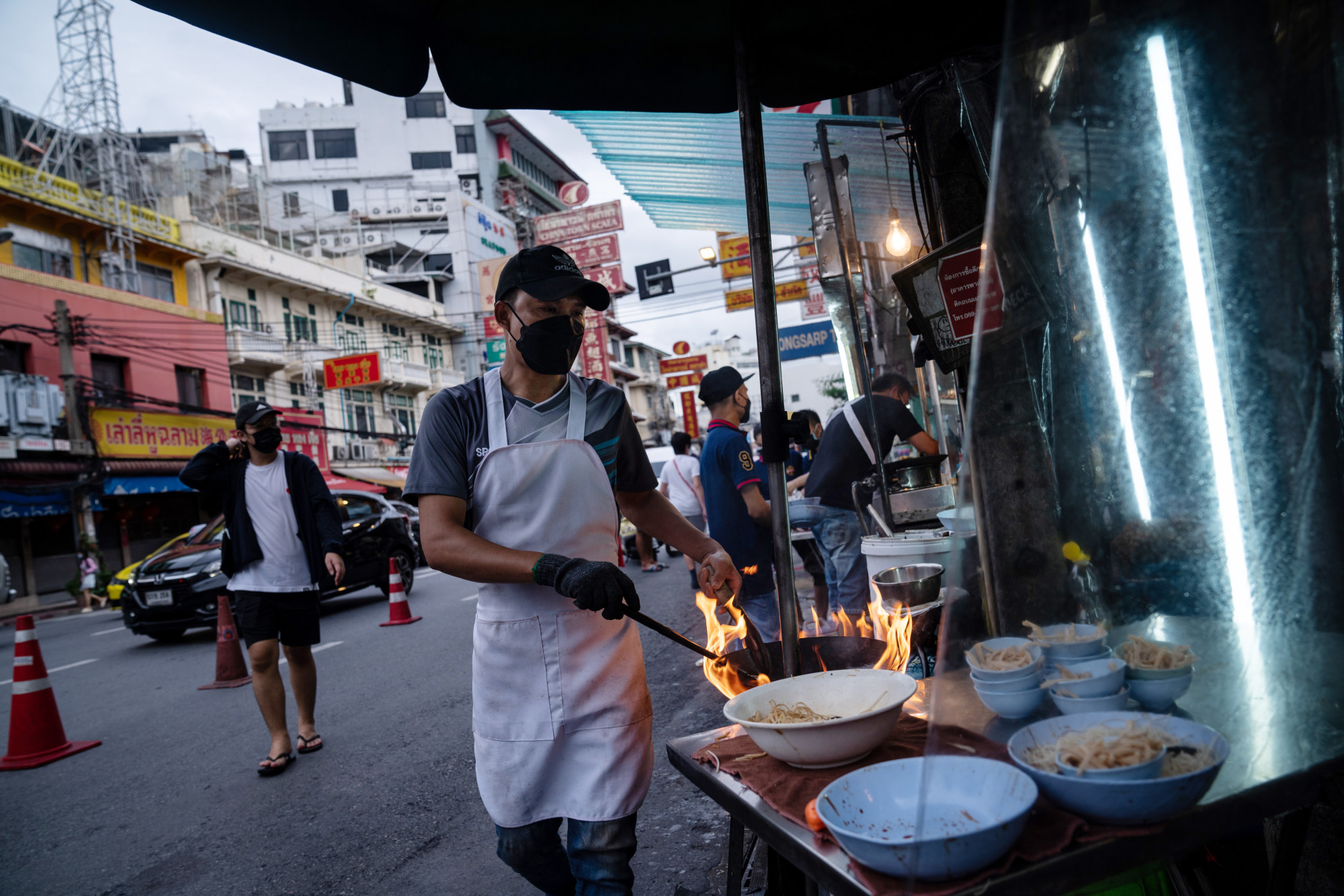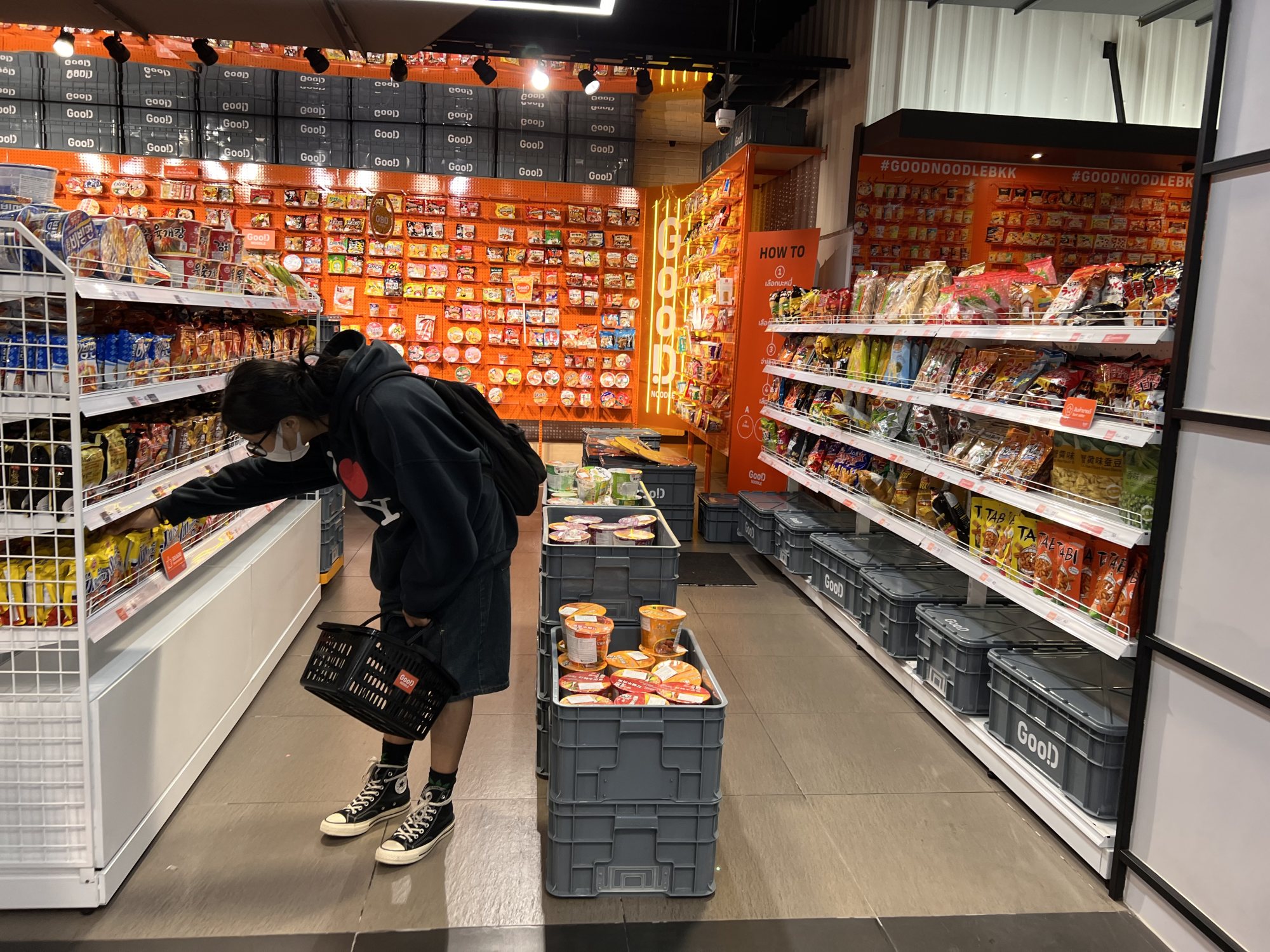
Thais cut back on staple as inflation eats into instant noodle prices
- Thailand’s noodle makers earlier this month urged the government to allow a price rise of their staple as inflation drives costs up
- Instant noodles are a popular diet for low-income Thais, whose purchasing habits have given economists a look into the health of the economy
Every week, Bangkok bus inspector Chayaklit Kitinarong buys several packs of instant noodles, a ubiquitous staple which powers millions of Thais through the day.
But the 46-year-old says he is likely to cut down on his intake after the six baht (16 US cents) pack nudged up to seven baht, as across-the-board inflation hits Thais in their pockets.
Chayaklit, who supplements his income by driving motorcycle taxis, said the one baht increase was marginal, but taken together with a major hike in fuel for his bike, cutbacks would have to be made.
“I have been paying double for fuel in the past weeks [so it is better that] I don’t eat instant noodles as often as before,” he said.

Prices of wheat, palm oil and agricultural products are soaring, while companies say the bills for logistics, plastic for packaging, energy and commodities have also surged.
On August 25, consumers found their instant noodles cost an extra baht for the first time in 14 years, a sign of what experts say is a wider cost of living crisis.
The Bank of Thailand was forced to raise interest rates this month to combat the inflation spike, which the government warns is likely to worsen over coming months as the price of electricity soars.
Thailand noodle makers plead to raise prices for 1st time in 14 years
Kanmanee owns a food stall in downtown Bangkok serving mostly office workers. Since early August, she has had to raise the price of all of her dishes by 10 baht.
“Everything has become more expensive, not just instant noodles,” said the vendor, who gave only one name.
Instant noodles were once viewed as an economic indicator in Thailand. In the early 1970s they cost two baht a packet, quickly winning a central place in the diets of millions of low-income Thais, whose purchasing habits gave economists a window into the health of the economy.
The big three brands – Mama, Wai Wai and Yum Yum – control close to 90 per cent of the market in Thailand and a considerable export volume to other Asian nations.
In 2019, Thailand was the third-biggest exporter of processed noodles, after China and South Korea.
According to the World Instant Noodles Association, Thailand is also among the world’s biggest consumers of instant noodles with 3.6 billion servings at the end of 2021. China, Indonesia and Vietnam hover in the top three.
The lingering impact of the pandemic has seen sales of instant noodles slip off as the poorest forgo meals and inflation creeps up.

Thai President Foods, manufacturer of Mama (a name synonymous in Thailand for instant noodles) which has more than 60 flavours, said the company’s net profit in 2021 decreased by 515 million baht or 12 per cent from the previous year due to higher costs and lockdown measures.
Saree Ongsomwang from the Thailand Consumers Council said instant noodles had to be priced higher because the government failed to control prices of raw materials.
Wider societal changes may also have prodded the price hike by noodle brands with a virtual monopoly on the market.
‘Hell on earth’: can the world spend its way out of the global food crisis?
Producers have had to get creative in order to win over fans among younger generations less-enamoured by the staple.
Thai President Foods recently revealed plans to open an instant noodle restaurant using its famed products as the main ingredients.
Ungkool Wongkolthoot, founder of Good Noodle, a self-service supermarket of imported instant noodles in Bangkok, said there had been a behavioural change especially among the new generation and their consumption of instant noodles.
“Middle- to upper-middle income groups always look for new instant noodles products with new flavours,” he said. “They are willing to spend between 20 baht and 200 baht for a packet of noodles from China, South Korea or Taiwan.”
Ungkool said his shop was bringing premium products to a sector previously considered as the last resort “meals for the end of the month”.

